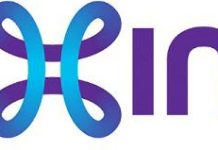
Provider encourages police, fire and other designated emergency response agencies to use free service for essential mobile data communications during times of crisis or natural disaster
With the official start of the 2019 Atlantic hurricane season imminent, C Spire is offering a free public safety data priority service designed to help local and state emergency first responders send and receive critical mobile data communications during a crisis or natural disaster.
The free, always-on service gives emergency personnel, including state and local government, police, fire and other designated public health and safety professionals, priority data network access on C Spire’s 4G LTE network.
C Spire already waives the one-time activation charge and monthly service fee for Wireless Priority Service, a companion feature that gives eligible emergency response agencies and personnel a higher priority voice connection to its mobile communications network during a crisis or natural disaster. To apply or learn more about DPS, go to the Department of Homeland Security.
“In an emergency situation, essential voice and data communications are critical for public safety and emergency responders who need to get through as fast as possible,” said Brian Caraway, general manager of C Spire’s wireless unit, noting that hurricanes, flooding and tornadoes cause billions of dollars in damage, injuries and deaths every year in the Southeast.
The initial outlook for the 2019 hurricane season from Colorado State University, considered the nation’s top forecaster, calls for a slightly below average season with 13 tropical storms (wind speeds of 39 mph or higher) and five hurricanes (74 mph or higher winds) forming in the Atlantic Ocean during the six-month period that officially begins on Saturday, June 1.
2018 was considered an above average season with 15 named storms and eight hurricanes, two of which were considered major, including Florence, which dropped nearly 36 inches of rain on North Carolina, and Michael, whose 155-mile-per-hour winds battered the Florida panhandle and produced 39 fatalities and $16 billion in damages.
While this year is expected to be below average for hurricanes, even lower threat years have produced catastrophic impacts on communities. In 2015, the remnants of Hurricane Joaquin dumped 24 inches of rain in South Carolina and caused over $1 billion in damages. Earlier, the Category 4 hurricane with 155 mph winds sunk the U.S. container ship El Fargo near the Bahamas, drowning all 33 crew members on board.
Caraway said it is critical for first responders to be able to communicate during emergencies. “We want to support emergency responders by making these important voice and data resources available and affordable for cities, counties and state entities responsible for protecting the public during times of crisis or natural disaster,” he added.
“We have a track record of service and innovation that is unmatched when it comes to meeting the critical needs of first responders,” Caraway said, recalling that C Spire made extensive preparations and network investments in 2005 to withstand Hurricane Katrina, which caused significant destruction and loss of life in New Orleans and along the Mississippi Gulf Coast.
C Spire has continued to leverage its investment in critical broadband infrastructure in its response to the Louisville tornado in 2014 and by providing critical high-capacity wireless broadband connections in 2017 to emergency services personnel responding to the U.S. Marine Corps KC-130 aircraft crash in rural Leflore County.








